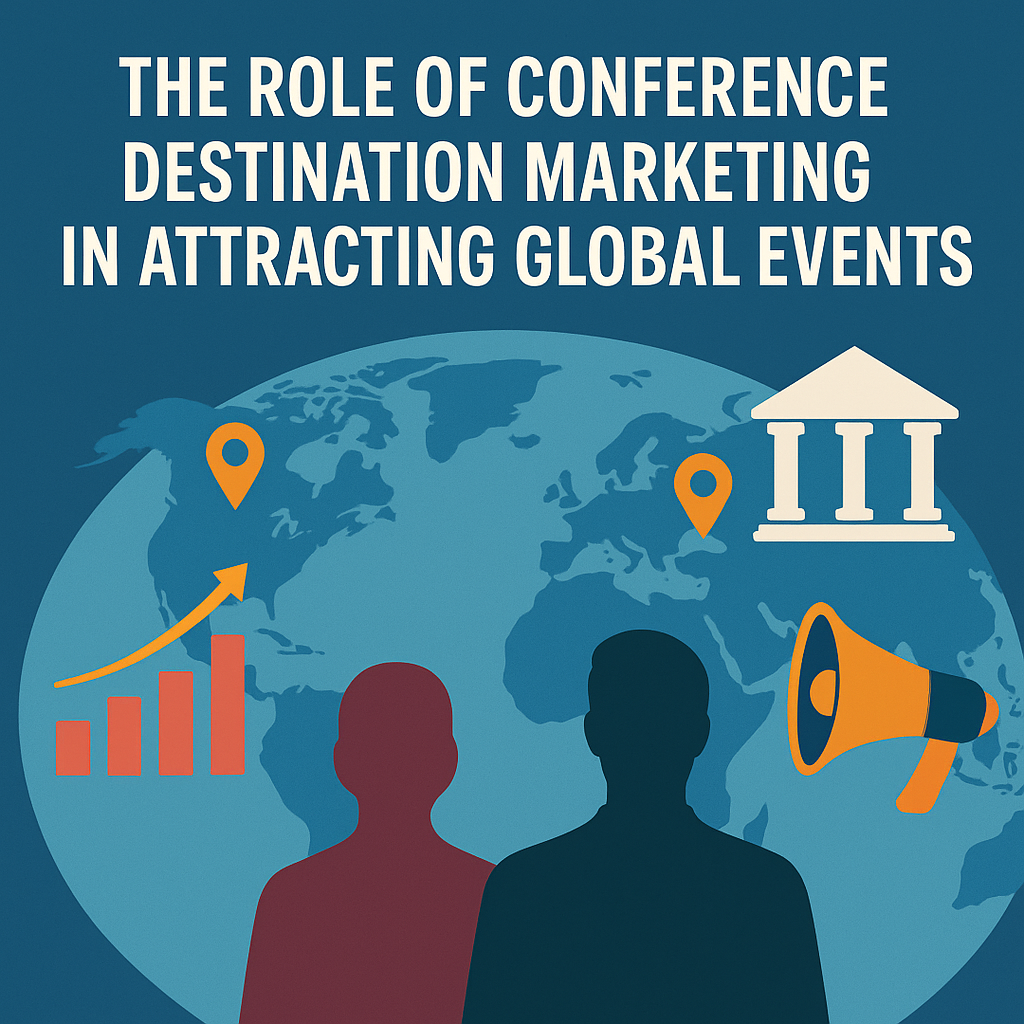The Role of Conference Destination Marketing in Attracting Global Events
In an increasingly interconnected world, cities and regions are competing to attract international delegates, major conferences and meetings that can shape their industries. How destinations promote themselves for events is now being transformed through conference destination marketing.
Showing off a city’s infrastructure and special culture, along with its major industries, is only part of conference destination marketing—it’s also about improving the city’s reputation, economy and influence around the world.
Why Conference Destination Marketing in the Global event space
The move from tourism to attracting strategic events.
Previously, the main aim of destination marketing was to appeal to people on holiday. City officials have come to see that hosting business events, especially international conferences and association meetings, is very valuable for their communities. As a result, these events attract people who spend a lot, help share knowledge and often make it possible for long-term investment and teamwork.
As a result, cities are now using Conference Destination Marketing, which matches their event promotion with their economic, academic and innovation strengths. The goal? To draw conferences that can help build the destination’s worldwide brand and reputation in the industry.
Creating a Special Value Proposition
A strong value proposition is the main factor in successful conference destination marketing. Cities should look for ways to go beyond showing venue sizes and hotel availability. They should tell a story that ties the event to the city’s overall character.
A city that focuses on biotech should, for instance, try to host important life science conferences. A digital innovation centre is expected to bring in conferences focused on technology. Because of this, global event planners and associations are more likely to be interested in places that give extra value to their meetings.
We have found that this strategy delivers great results at Meeting Media Group. As an Association Magazine for Event Planners, we regularly highlight cities that match their advantages well with conference themes, which encourages more interest and successful bids.
Teamwork is the Key to Success
Every destination needs support from others. A successful conference destination marketing strategy depends on strong teamwork among convention bureaus, local authorities, universities, hotels and professionals in organising congresses.
Such partnerships prepare event bids well and help events to be carried out smoothly once they happen in the city. Ambassadors from the community must use their connections to spread the word and support the city.
They are not limited to logistics—they embody thought leadership in associations by demonstrating how destinations can be part of the intellectual and professional advancement that conferences foster.
Content, Community, and Consistency
Currently, event planners select not only where to hold events, but also what stories to highlight. They are interested in cities that provide valuable relationships, lively neighbourhoods and memorable events. That’s the reason why digital storytelling is now a key part of any marketing plan for conference destinations.
By using rich content, running strategic social media campaigns, using engaging videos and partnering with publications, destinations can keep their visibility and relevance to global decision-makers.
It is also important to stick with the same routine. An effective brand should be visible on trade shows, websites, ambassador activities and bidding materials. A unified identity creates trust and leaves a strong mark on people.
Going Beyond the Event
The legacy impact that a conference leaves is now a major factor in successful marketing. More and more, event planners and association leaders want to know how a conference benefits the local community, either by working with organisations, offering educational opportunities or being environmentally friendly.
Committing to lasting effects, not only tourism numbers, helps cities become recognised as modern and goal-oriented destinations. As a result, cities now have more chances to collaborate with associations that have the same values and objectives.
Conclusion
Today, conference destination marketing is required, not just a way to stay ahead of others. As organisations become picky, cities wanting to stay competitive should use marketing plans that are genuine, backed by data and involve cooperation.
Anyone in the industry interested in staying current can rely on Meeting Media Group. In our role as an Association Magazine for Event Planners, we highlight new places to visit, creative methods and the professionals leading the way in the meetings industry. For more information, visit today!

